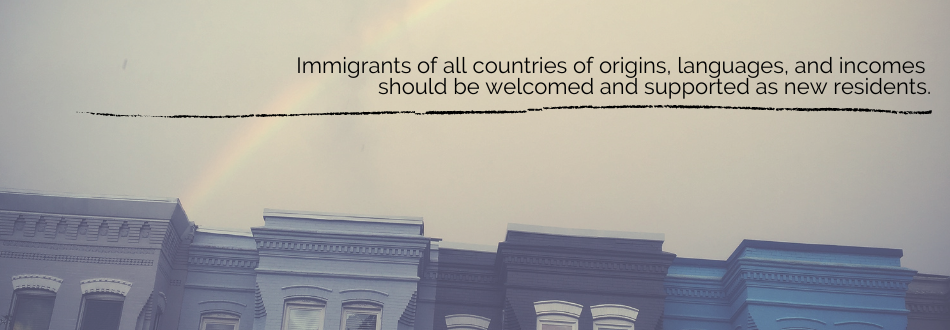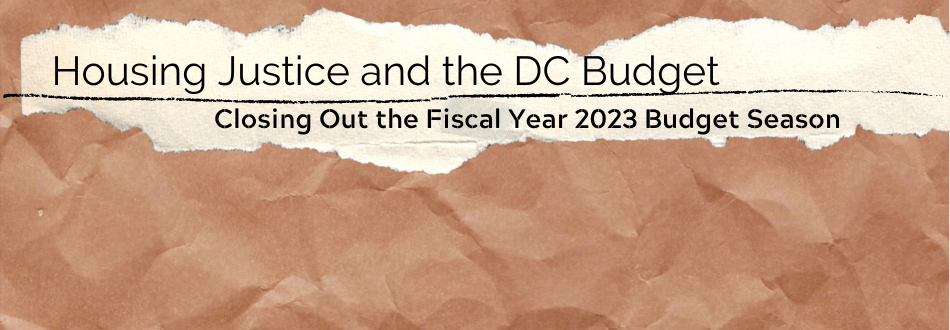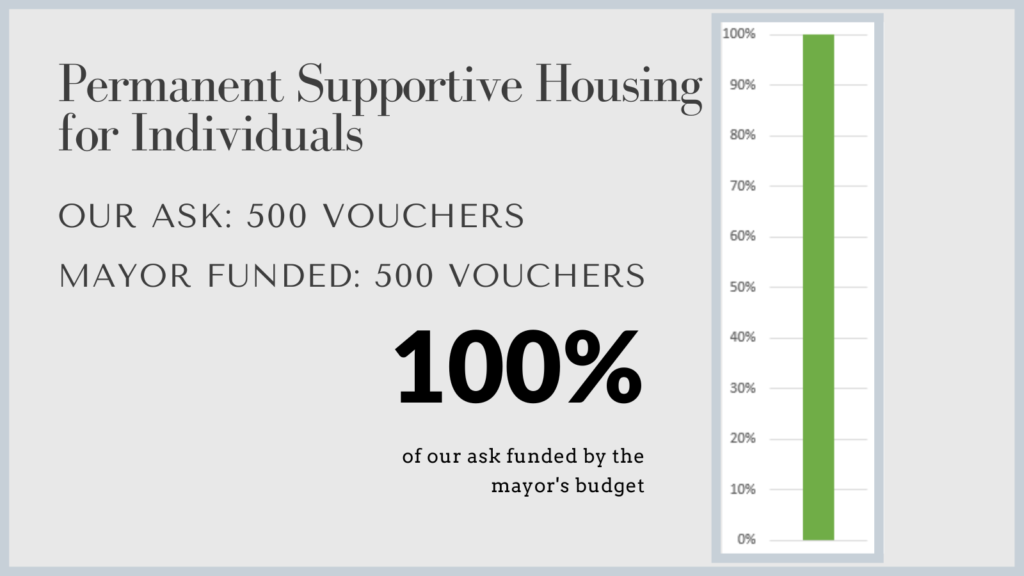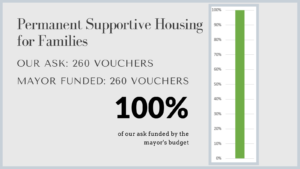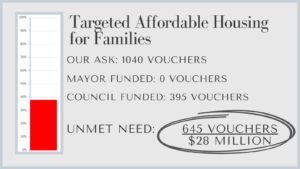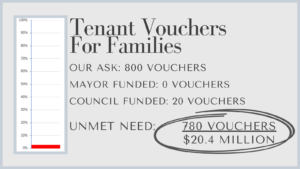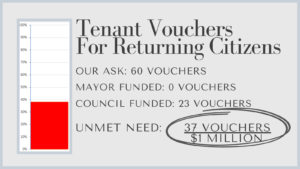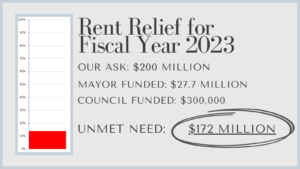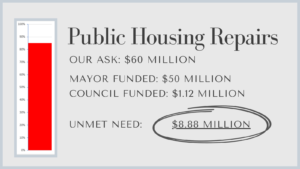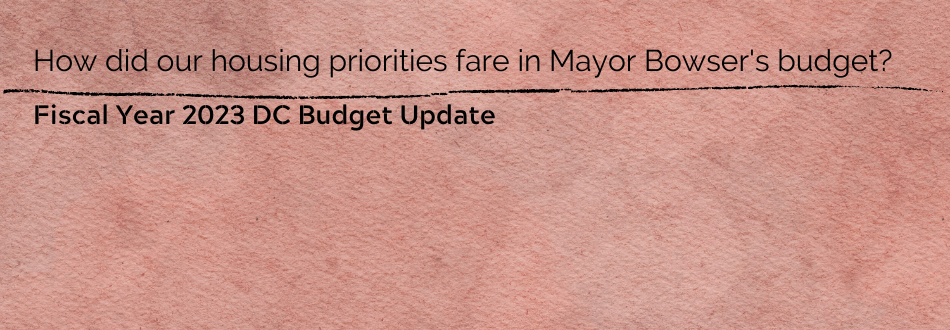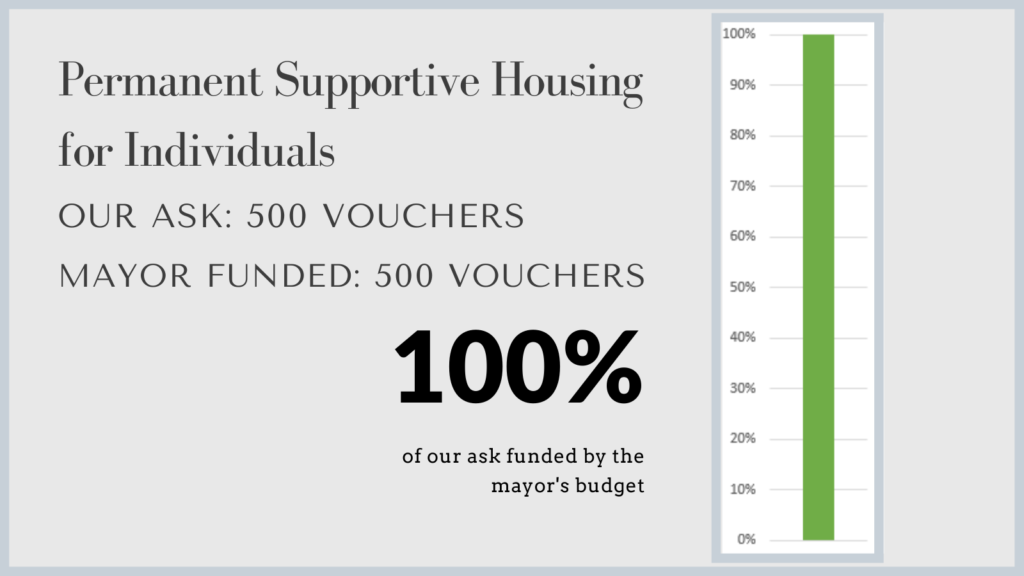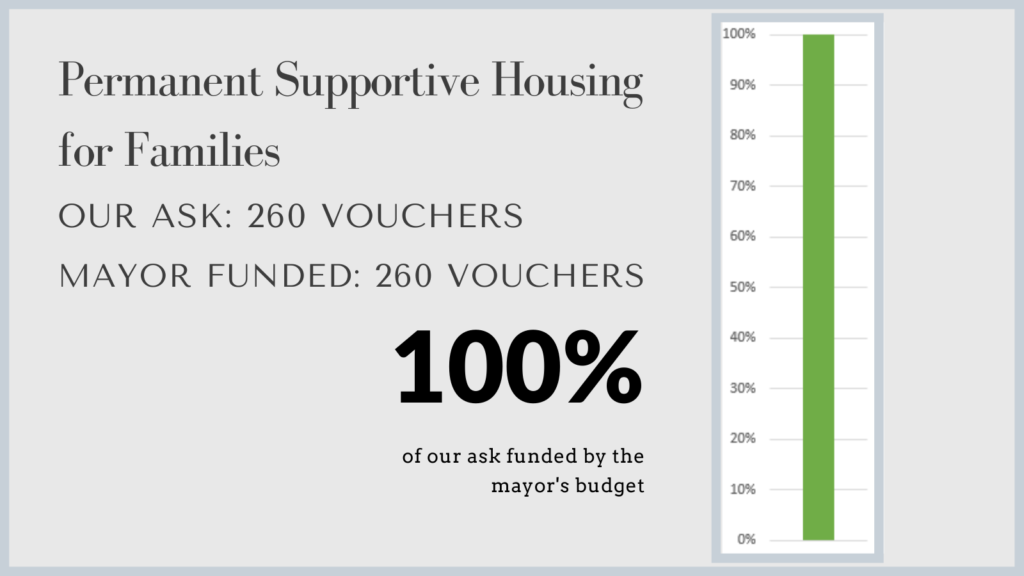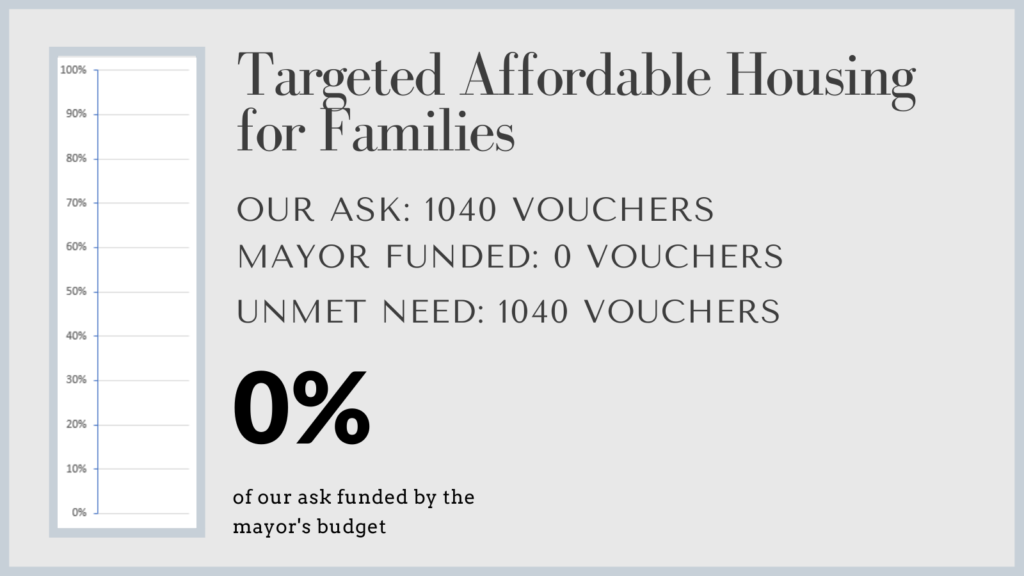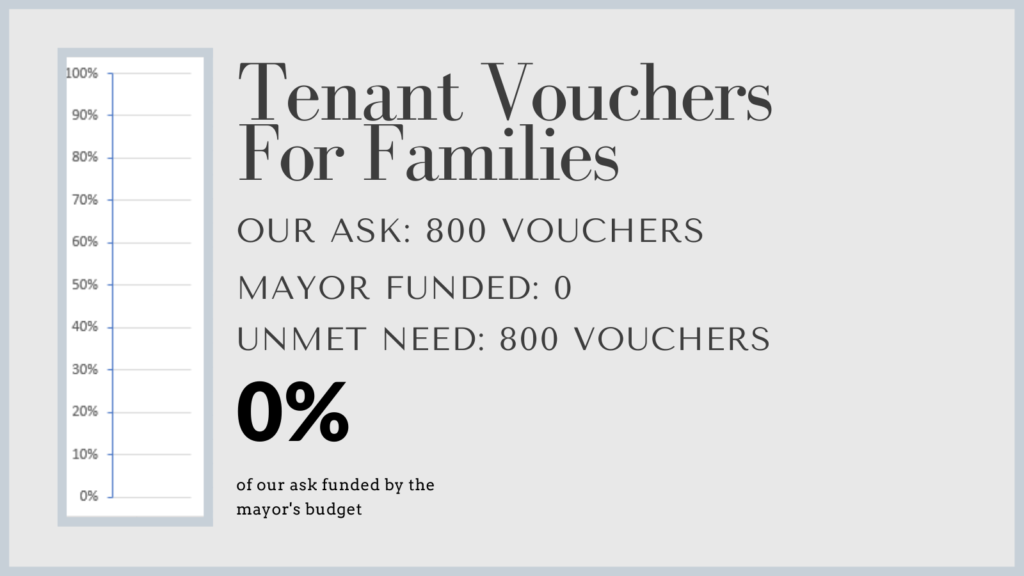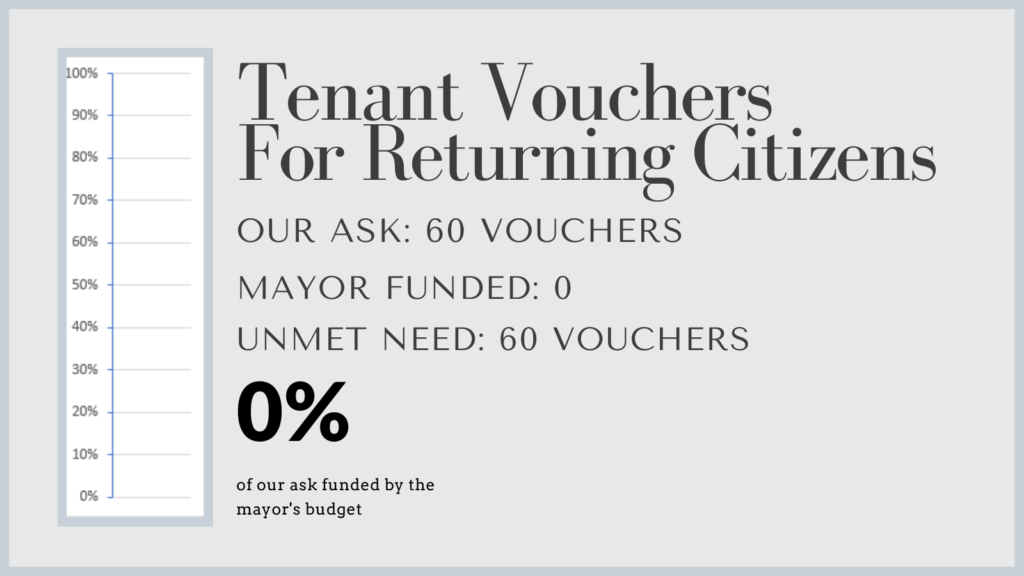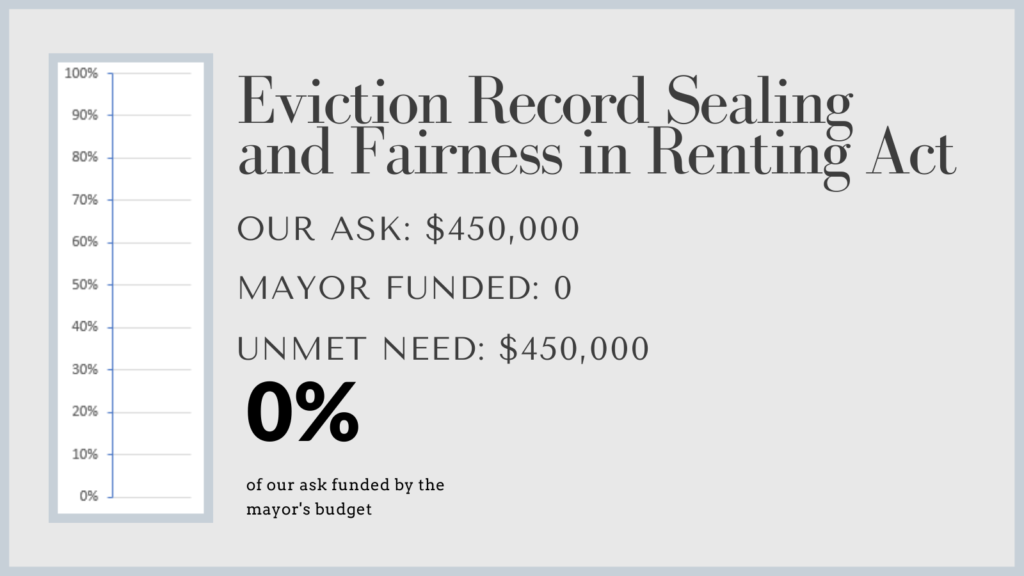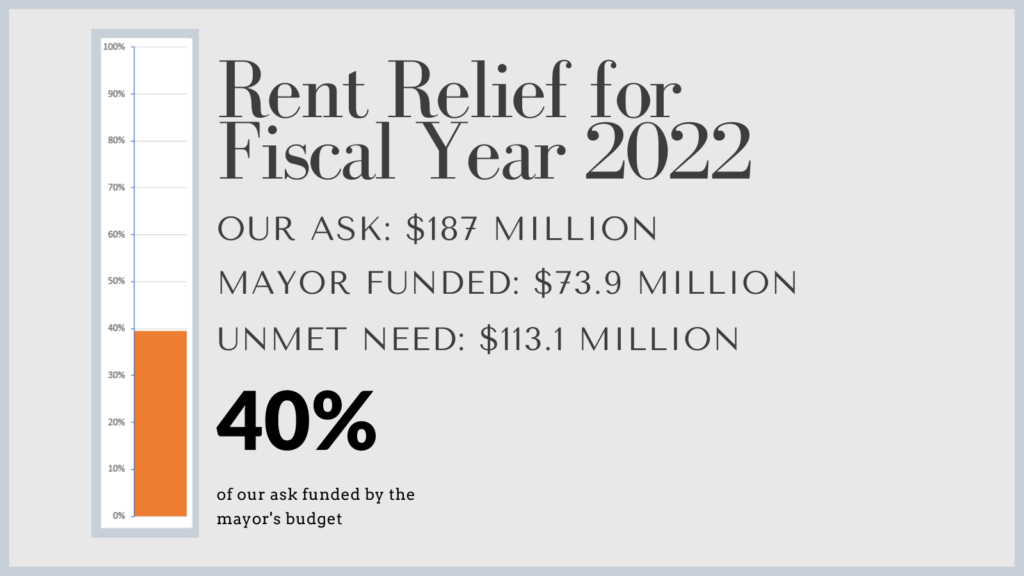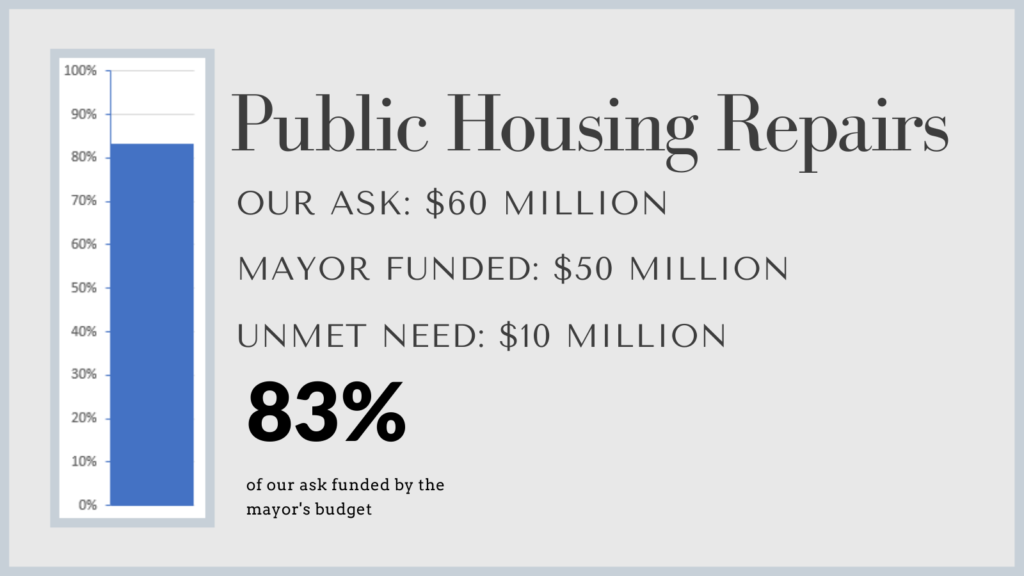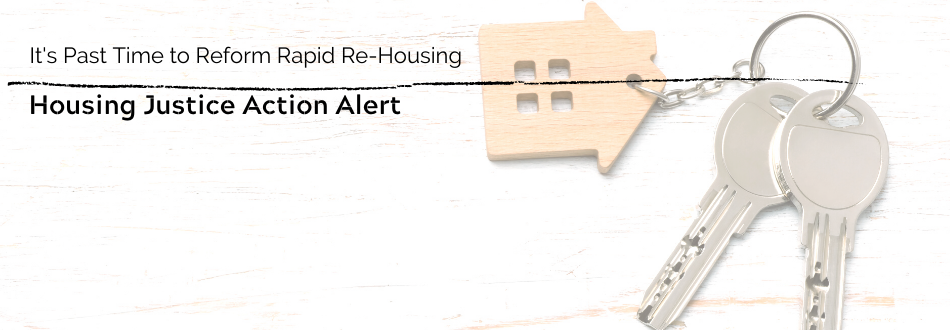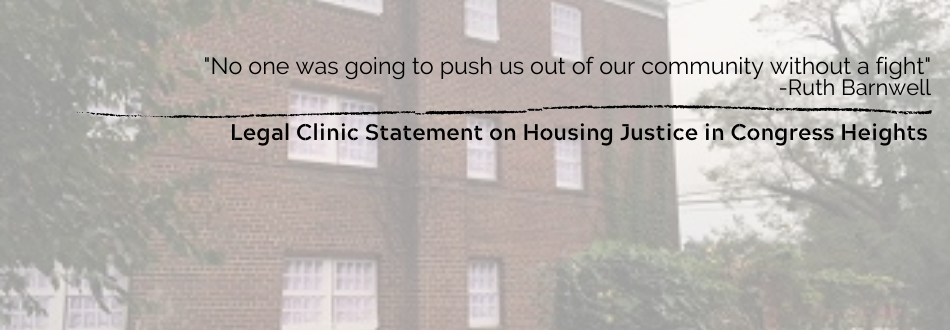We have long advocated for substantial reform for the rapid re-housing program in DC. The urgency of that advocacy intensified last winter, when the Department of Human Services announced it intended to start terminating almost 1000 families for reaching a time limit in rapid re-housing, even though the agency knew that nearly all of those families would be thrown into crisis as a result. In the spring of 2022, 66 organizations and experts and almost 400 individuals asked the DC Council to “reform rapid re-housing legislatively so that DC residents cannot be terminated for a time limit until they can afford rent without further assistance.”
In early summer, Chairman Mendelson, along with nine of his colleagues, introduced the Rapid Re-Housing Reform Amendment Act of 2022 in direct response to the community’s plea for reform. The bill is set for a hearing in the Committee on Human Services on October 20. Because the Council session ends in December, the bill will need to mark the bill up and vote on it twice before the end of the year. The full text of the bill can be read here.
Next week, the Legal Clinic will be holding some information sessions for the public to talk about what is in the bill and to answer questions. Monday, October 3 at 6PM we will hold a virtual session. Please reach out to Amber Harding at amber@legalclinic.org for the link. On Tuesday, October 4, from 11AM-1PM, we will hold an in-person session for impacted community members (anyone who has experience with the rapid re-housing program). Please reach out to LaJuan Brooks at lajuan@legalclinic.org if you would like to attend. Lunch will be provided to all. Transportation can be provided upon request.
Q&A about the bill
Does the bill only reform rapid re-housing for families? What about individuals?
While most of the participants in rapid re-housing are families, the reform in the bill applies to both families and individuals.
How does the bill fix the arbitrary time limit in rapid re-housing?
Participants can still be exited for reaching a time limit, if they can afford their rent. For participants who cannot afford market rent without assistance when they reach the time limit and are eligible for Permanent Supportive Housing or Targeted Affordable Housing, the bill requires that DC continue to provide rental assistance until the participant can transition into a permanent housing subsidy program. This change formally implements the universally supported recommendation from the FRSP Task Force in 2020—that rapid re-housing should be a “bridge program” for participants who are eligible for permanent supportive housing or targeted affordable housing.
Does the bill fix how much rent participants have to pay?
Yes. The bill ensures that rent is affordable to participants in rapid re-housing by limiting rental burden to 30% of income. Right now, participants pay between 40-60% of their income for rent. Not only are those rents considered unaffordable by federal guidelines, but different households have different rent burdens, and the Inspector General cited the Department of Human Services for seemingly arbitrary rent determinations.
Can participants still be terminated for not participating in case management services, even if those services are not helping?
No. The bill transitions rapid re-housing into a voluntary services model, consistent with national best practices and DC’s Housing First approach. This means that participants can choose what services best meet their needs and cannot lose their housing if they choose not to participate. The bill also requires that participants in Temporary Assistance for Needy Families (TANF) receive case management services through their assigned TANF vendor so that they do not have two case managers from the same agency. This reduces duplication of services and creates some cost savings for the bill.
How does the bill make sure people actually get permanent affordable housing if that’s what they need?
The bill requires assessments of and eligibility determinations for participants for Targeted Affordable Housing (TAH) and Permanent Supportive Housing (PSH) within six months of entry and within three months of proposed exit. Often, participants are not even aware that those programs exist, are not consistently assessed for both programs, and do not receive lawful eligibility notices explaining why they are or are not eligible for the programs. The bill also requires that information be provided about home ownership programs, but much work has to be done to make those programs truly accessible to rapid re-housing participants. What the bill doesn’t do, though, is ensure sufficient resources are available to serve everyone in need. That will have to come later, in the budget process.
How much does the bill cost to implement?
We don’t know yet. There will not be a fiscal impact statement until later in the process. While we do expect the bill to have a cost, there are efficiencies in the bill as well that could bring that cost down, such as streamlining case management and changing it from a mandatory to a voluntary service model.
Does the bill create a right to housing?
No. We wish it did. The bill only creates some limits on DC’s ability to terminate participants who have reached a set time limit in the program, just like there are limits on when participants can be terminated from other housing programs, like PSH or TAH. Setting restrictions on grounds for termination in housing or public benefit programs does not transform those programs into entitlements.
Does the bill end poverty or homelessness?
No. The purpose of the bill is to reform rapid re-housing. DC must invest far more energy in resources in closing the gap between income and rent, whether by bringing incomes up or by bringing rents down. But in the meantime, rapid re-housing participants are being harmed by a program design that turns a blind eye to how large that gap between income and rent is for many DC families. This bill is a small but critical way to move us one step closer to housing justice in DC.
Q&A about rapid re-housing
How much does rapid re-housing cost, as compared to other housing programs?
Rapid re-housing: $32,000/year/family, $25,092/year/individual
PSH: $39,385/year/family, $25,003/year/individual
TAH: $25,153/year/family, $21,667/year/individual
Does rapid re-housing reduce family homelessness?
Yes and no. Rapid re-housing is considered permanent housing right now, so families in rapid re-housing are not “counted” as homeless. Families that are terminated from rapid re-housing for a time limit often return to homelessness, even if they do not necessarily return to shelter. In general, shelter numbers are only the tip of the iceberg when it comes to counting homeless families. For example, while the 2021 Point-in-Time (PIT) Count reported 498 homeless children and unaccompanied minors, DC public and charter schools counted 5,893 students as homeless during the 2020-21 school year.
If only a small percentage of families return to shelter within a year of exiting, isn’t the program a success?
We have long said that return to shelter is not the only negative outcome, that you can be homeless without entering shelter, and that many families get displaced out of DC entirely at the end of the program. This year, for the first time, DHS acknowledged and agreed with that assessment, saying that:
“At the core of DHS’s values and mission is the well-being of families. This line of questions implies that DHS would consider any non-return to shelter a success without regard for harms that families may experience. DHS is not myopic and does not ever consider evictions, overcrowding, being subject to violence and abuse, or further instability as measures of success.”
Do families in rapid re-housing increase their income in the program?
Only 26% of families in FY21 saw their income increase, an average of $39/month. (Yet DC pays $863/month for case management services– a number that is set to increase in FY23 to over $900/month.)
What is the amount of income of families in rapid re-housing?
75% of families in program receive Temporary Assistance for Needy Families. (A family of 3 receives a maximum of $658 in that program.)
How many families can afford rent when they hit the time limit?
Only 3% of families in rapid re-housing can afford rent without further assistance when they are terminated for reaching a time limit.
What is the impact of time limit terminations on Black families and individuals?
We know that 97% of families in rapid re-housing are Black, and even higher percentage than the percentage of the homeless population that are Black (88%).
Next Steps
- For questions or to join the campaign to reform rapid re-housing, contact Amber Harding, Director of Policy and Advocacy at the Washington Legal Clinic for the Homeless: amber@legalclinic.org.
- Sign up to testify at the October 20 hearing by the close of business on Thursday, October 13, 2022.
- If you are an organization, sign onto a letter supporting the passage of the bill here.
